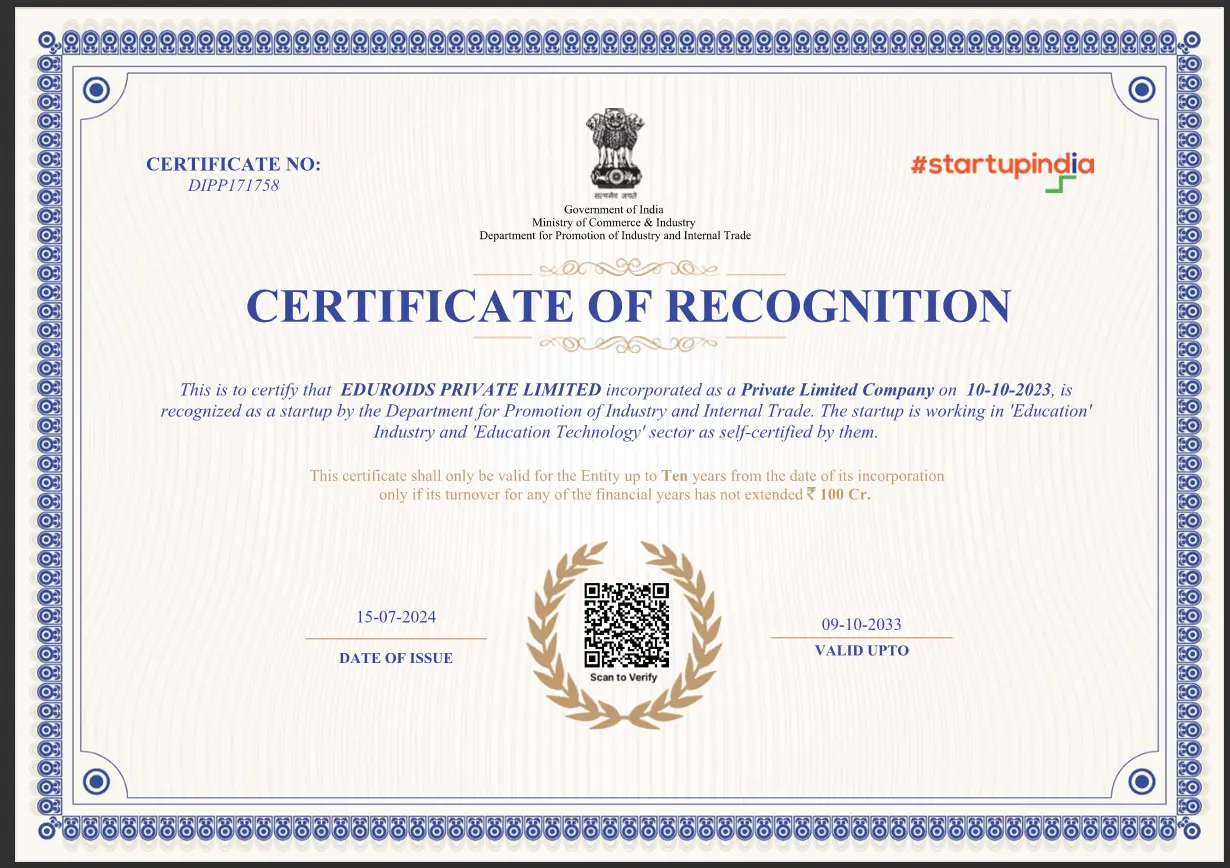Requirements-
- Hardware: Working laptop with camera and mic.
- Location: A peaceful environment with minimal distractions to fully benefit from the training.
- Language: English
Terms & Condition-
- Secure a minimum certification score of 70% during the training phase to be eligible for a PPO; otherwise, a reattempt is required..
- After receiving a PPO, advance in your career by achieving the minimum KRA-KPI score set by the hiring company; otherwise, an extension may apply at the same position.
Eligibility
Professional Experience:
- Age Limit: 26 years or younger.
- Ideally, 1 year of experience in data analytics, AI-ML development, or related roles, such as:
- Data Scientist
- AI/ML Programmer
- Data Analyst
- Machine Learning Engineer
- AI Research Assistant
- Preferred Certifications:
- Google TensorFlow Developer Certificate
- AWS Machine Learning Specialty Certification
- Microsoft Azure AI Engineer Certification
- Relevant experience in machine learning model development, AI programming, or data analysis is highly valued.
- Freshers with strong technical skills and AI-ML foundations are encouraged to apply.
Certification Requirement:
While not mandatory, obtaining an advanced certification in AI/ML or Data Science (e.g., TensorFlow, AWS ML, Azure AI, or GCP Machine Learning Engineer) within 90 days of program completion is highly recommended to enhance your career prospects.
Educational Background:
- Bachelor’s degree in computer science, engineering, mathematics, or related fields.
- Master’s degree in AI, Data Science, or Machine Learning is a plus but not required.
- Advanced certifications (e.g., Google AI/ML Engineer, AWS ML) are an added advantage.
Technical Proficiency:
- Programming Skills: Strong knowledge of Python, R, or Java, with hands-on experience in libraries like TensorFlow, PyTorch, or Scikit-learn.
- Machine Learning: Proficiency in building supervised and unsupervised models, hyperparameter tuning, and feature engineering.
- Data Infrastructure: Familiarity with databases, data warehousing, and cloud platforms like AWS, Azure, or Google Cloud.
- Visualisation Tools: Experience with tools such as Tableau, Power BI, or Matplotlib for data storytelling.
- AI Technologies: Exposure to advanced AI topics like Natural Language Processing (NLP), Computer Vision, and Reinforcement Learning.
Analytical and Quantitative Skills:
- Strong problem-solving skills with the ability to interpret patterns, trends, and performance metrics.
- Proficiency in developing scalable AI-ML solutions to support business objectives and decision-making.
Aptitude for AI and Technology:
- Demonstrated passion for AI, machine learning, and cutting-edge technologies.
- Commitment to staying updated on emerging trends in AI ethics, security, and automation practices.
Commitment to Learning:
- Motivation to excel in data science and AI-ML domains through rigorous training, assessments, and project work.
- Willingness to participate in professional development to stay ahead in AI innovation.
Professional and Interpersonal Skills:
- Strong communication and presentation skills to convey AI-driven insights effectively.
- Team-oriented mindset with the ability to adapt to fast-changing AI technologies and organisational requirements.
This program equips participants with the technical, analytical, and professional skills needed to excel as AI-ML Programmers and Data Scientists, preparing them to lead innovative projects in AI-first organisations and tackle complex challenges in diverse industries.














